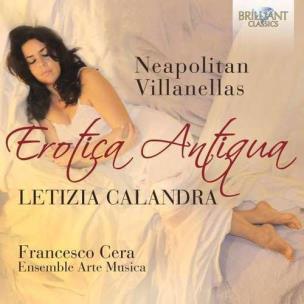- Regulamin
- Koszty dostawy
- Kontakt
- Dziś w ofercie 236 544 produkty
KSIĄŻKI
- Albumy
- Beletrystyka
- Biografie
- Dla dzieci i młodzieży
- Edukacja
- Ekonomia i biznes
- Ezoteryka
- Historia
- Informatyka
- Kalendarze
- Komiksy
- Kryminał i sensacja
- Kultura i sztuka
- Literatura faktu
- Literatura kobieca
- Literatura piękna
- Medycyna
- Nauka języków obcych
- Nauki humanistyczne
- Nauki przyrodnicze
- Nauki ścisłe
- Podręczniki
- Poradniki
- Prawo i administracja
- Przewodniki i podróże
- Psychologia
- Religia
- Sport
- Technika
- Zdrowie i uroda
ZABAWKI
- Artykuły dla niemowląt
- Bączki
- Bujaki i skoczki
- Ciągnij / pchaj
- Dla niemowlaka
- Grzechotki i gryzaki
- Karuzele i pozytywki
- Maty i centra zabaw
- Projektory i lampki
- Sortery i piramidki
- Zabawki
- Edukacyjne i kreatywne
- Figurki
- Klocki
- Lalki
- Pojazdy
- Pluszaki i maskotki
- Sport i rekreacja
- Zabawa w dom
- Zabawki drewniane
- Puzzle
- Do 200 elementów
- 201-500 elementów
- 501-1000 elementów
- Ponad 1000 elementów
- Puzzle 3D
ART. PAP
- Artykuły biurowe
- Artykuły piśmiennicze
- Bloczki i kartki samoprzylepne
- Dziurkacze
- Kalkulatory
- Nożyczki i nożyki
- Skoroszyty
- Teczki
- Wizytowniki
- Zszywacze
- Artykuły szkolne
- Akcesoria szkolne
- Modelowanie
- Notatniki i zeszyty
- Piórniki
- Plecaki i torby
- Pojemniki na śniadanie
- Pomoce naukowe
- Przybory matematyczne
- Przybory rysunkowe
- Upominki i gadżety
- Akcesoria do książek
- Artykuły balowe
- Breloki i zawieszki
- Drobiazgi, różności
- Kubki
- Oferta Świąteczna
- Papeteria, kartki i naklejki
- Skarpetki Many Mornings
- Upominki
GRY
MULTIMEDIA
- Audiobooki
- Beletrystyka
- Biografie i wspomnienia
- Dla dzieci i młodzieży
- Fantastyka
- Filozofia i religia
- Historia
- Literatura faktu i reportaż
- Poradniki
- Sensacja i kryminał
- Filmy DVD/BD
- Animowane
- Biograficzne
- Fantasy
- Horrory
- Komedie
- Romanse
- Science Fiction
- Sensacyjne / kino akcji
- Thrillery
- Muzyka CD
- Alternatywna
- Blues
- Dla dzieci
- Jazz
- Klasyczna
- Piosenka aktorska i poetycka
- Pop
- Rock
- Świąteczna i kolędy
- Akcesoria GSM
- Głośniki
- Kable i adaptery
- Klawiatury
- Myszy
- Słuchawki
PROMOCJE
ZDROWIE
LEGO

EROTICA ANTIQUA
Autor: Letizia Calandra
Wydawca:
Brilliant Classics
EAN:
5028421954486
Nośnik:
CD-Audio
oprawa:
Pudełko CD
format:
12.1x14.4
język:
angielski
rok wydania:
2016
(0) Sprawdź recenzje
Opis produktu
Zasady bezpieczeństwa
Calandra, Letizia - Villanella Che All'acqua Vai
Calandra, Letizia - Boccuccia D'uno Persic' Apertu
Calandra, Letizia - Madonna Tu Mi Fai Lo Scorrucci
Calandra, Letizia - Tu Sai Che La Cornacchia
Calandra, Letizia - Chi Sai Malditta L'acqua
Calandra, Letizia - La Morte Di Martio
Calandra, Letizia - Oi Ricculina
Calandra, Letizia - Vurria Ca Fosse Ciacola
Calandra, Letizia - Vorria Crudel Tornare
Calandra, Letizia - Fonata Che Dai Acqua
Calandra, Letizia - Fuggit' Amore
Calandra, Letizia - Girometta Senza Te Non Vivero
Calandra, Letizia - Matona Mia Cara
Calandra, Letizia - Sto Core Mio
Calandra, Letizia - Madonna Mia, Pieta
Calandra, Letizia - O Occhi Manza Mia
Calandra, Letizia - Chi La Gagliarda
Calandra, Letizia - O Bellissimi Capelli
Calandra, Letizia - Vezzosette E Care Pupilliette
Calandra, Letizia - Occhietti Amati
Soprano Letizia Calandra is passionate about the promotion of traditional Neapolitan music. She has already recorded two albums of ‘Classico Napoletano’ repertoire, featuring 19th-century canzone napoletane, but this time she turns her attention to a lesser-known and much older tradition: villanellas. These were 16th-century songs, set in the Neapolitan dialect by composers aping the lyric traditions of the street or countryside. Featuring bawdy characters and crude themes involving cuckolded husbands, scheming maids or jealous suitors, these light pieces originated from the strong tradition of the ‘rustic fool’ in Naples. Performing on period instruments (including the unusual lirone) that would have been used in 16th-century Naples, Calandra is joined by the early music ensemble Arte Musica, and together they create an authentic portrayal of the fascinating jumble of characters who made up this unique Renaissance city.
Letizia Calandra is a firmly established interpreter of Neapolitan music. She comes from a background of Baroque and Renaissance repertoire, having performed in such operas as Ercole amante and Dido and Aeneas. Previous recordings include ‘Scarlatti and the Neapolitan Song’ for Brilliant Classics (BC94488), with Francesco Cera on the harpsichord, a record described as ‘convincing in every respect’ by Music Web International. Cera is a leading specialist of early music in Italy and frequently records for Brilliant Classics. His album of Bach’s Orgelbüchlein (BC94639) was praised for its ‘magnificence’ by Arkiv Music.
The Villanella is closely related to the city of Naples, as Thomas Wythorne already wrote in 1572: “groups of musicians vied with another sing rustic songs..they wandered the streets, improvising verses and songs in honour of the beautiful women they saw at their windows, and created a sweet harmony that delighted all who heard it”.
The Villanellas are far removed from the courtly poetry of the time, which sings of yearnings for the unattainable female beloved, speaking of sighs and tears. The Villanella however speak of water as the metaphor of love: dishes break, jugs crack and overflow with eroticism.
This new recording features a generous selection of Villanellas by lesser-known composers as Giovanni Dell’Arpa and Filippo Azaiolo, but also by renaissance master Orlando di Lasso, who apparently had a soft spot for this genre.
Recorded in Laureana Cilento, Italy, in August 2016.
Contains liner notes by musicologist Alessandro Taverna.
Contains biographies of the artists.
CENA:
13,49
zł
Cena detaliczna:
24,90 zł
46%
rabatu
Najniższa cena z ostatnich 30 dni: 13,54 zł
Produkt niedostępny
Uwaga!!!
Ten produkt jest zapowiedzią. Realizacja Twojego zamówienia ulegnie przez to wydłużeniu do czasu premiery tej pozycji. Czy chcesz dodać ten produkt do koszyka?


Wybierz wariant produktu
